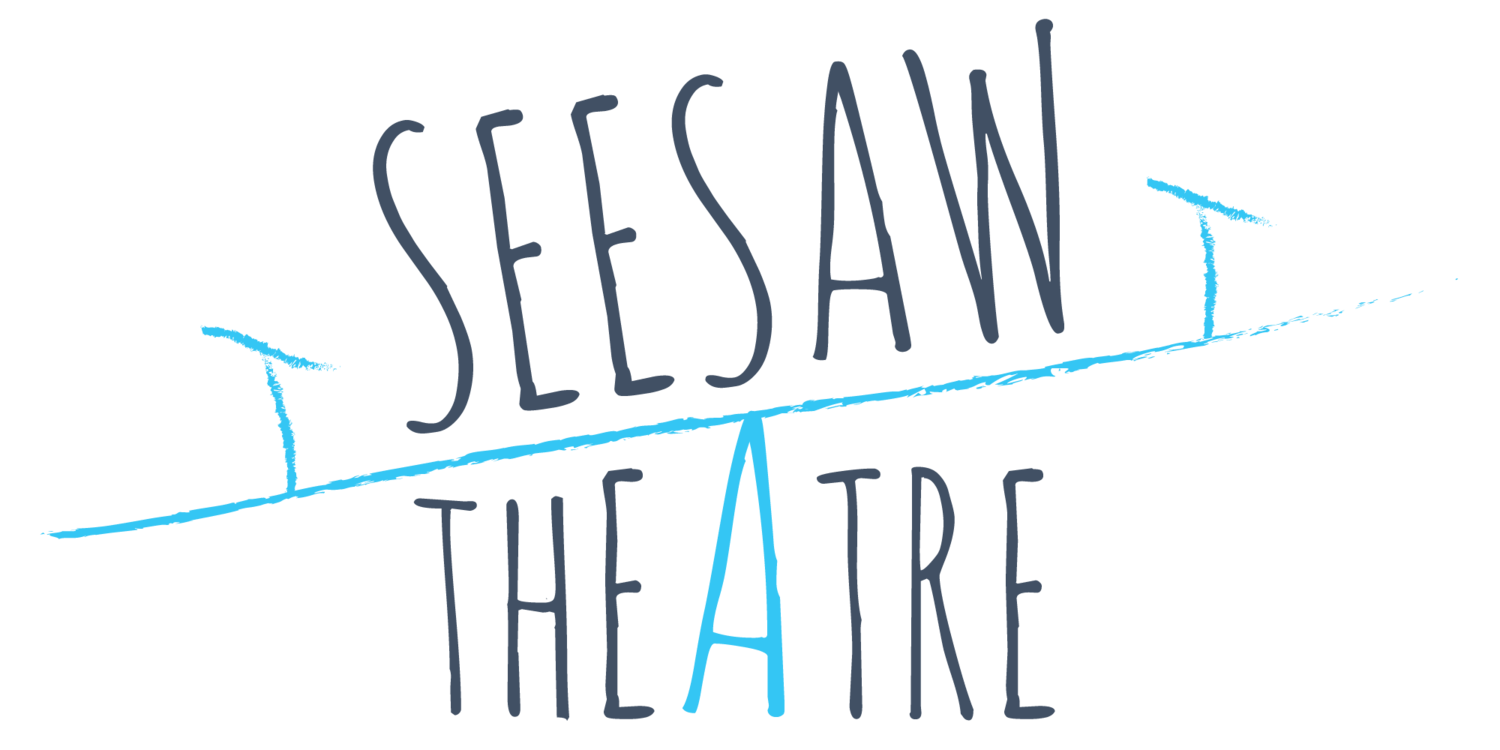“Life-changing” is an overused phrase. There are plenty of things I’ve experienced – plenty of things we’ve all experienced – that are unbelievably awe-inspiring, perspective-altering, or just plain amazing, but too often those moments (and much lesser moments) are hyperbolically described as having changed someone’s life. Exactly what about your existence did that play/book/movie/vacation change? Are you really an entirely different person than you were before?
So when I say that Seesaw Theatre changed my life, I’m not using that phrase lightly.
I was lucky enough to be an adventure guide in the very first Seesaw production (at that point it was called Theatre Stands with Autism). I walked into the room on our first day with no idea what to expect: I had very little experience working with differently abled people, even less experience devising multisensory theater, and absolutely no clue whether anything we were doing would work. I had spent my time at Northwestern heavily involved with drama education and creating theater for young audiences, and I wanted to add another skill to my resume. That was it. I definitely did not expect my life to be changed.
Two years later, I’m starting a company to bring the kind of work we started with Seesaw to New York. It’s called Bluelaces. I think it’s safe to say that the rest of our executive board also had life-changing experiences with “Diving In” and “Strung Along” (last year’s Seesaw production), and hopefully we’re creating a space for many more people to do the same.
Okay. But what about Seesaw did it?
Since I started making theater for people with developmental differences, I noticed myself taking longer to get dressed in the morning because I would get distracted by the feel of a sweater in my closet. I stopped listening to music on my way to class or work because there was so much to hear just walking down the street. As I began to understand what it meant to create multisensory theater, my whole world became more multisensory. I learned from our audiences that hearing and touching and smelling are just as important – oftentimes more – than seeing. There was an entire language that I couldn’t understand until I forced myself, in the interest of creating something unique and artful for this population, to listen. I started to explore my day-to-day rituals for all the sensory experiences they had to offer, and, in no small way, that has changed my life.
It’s that change in my life that makes me wonder why this population has been cast aside. There is no less or more about the way they experience the world. It’s different, and it’s a difference from which we can and should learn, because there’s a whole lot to learn. There is no less or more, and so there should be no less space for their unique and valuable minds to be expressed. We often talk about theater as a way to impart a message or a lesson, but for me, it feels a lot more special when all parties involved get to learn something from each other. When was the last time you heard of a Shakespeare performer learning life-changing lessons from their audience?
I had the privilege of returning to Northwestern this week to see an early run of this year’s production, “In the Game.” It does what Seesaw has done in the past: it creates a safe and exciting space for audiences to engage with all of their senses – or not, if they so choose. But something about this year was different. It’s so fun. “Diving In” was fun, “Strung Along” was fun, but “In the Game” is fun. I couldn’t articulate the difference until Daphna summed it up by describing “In the Game” as a big celebration, as opposed to “Strung Along,” which was a big, comforting hug.
That’s huge. When you’re dealing with a field whose canon is as small as this one, you need hugs and you need celebrations and you need everything else in between. The three shows that Seesaw has created – and the countless more that they (and the Bluelaces crew here in New York) will create – have already contributed in massive ways by creating not just a larger volume of work for people with cognitive differences but a wider breadth of work both with regard to content and to tone. Why shouldn’t this population have the ability to experience a big hug and a big party, if that’s what they want? They’ve opened up so many new possibilities for me, and I’m so grateful that we get to open up a few new possibilities for them.

